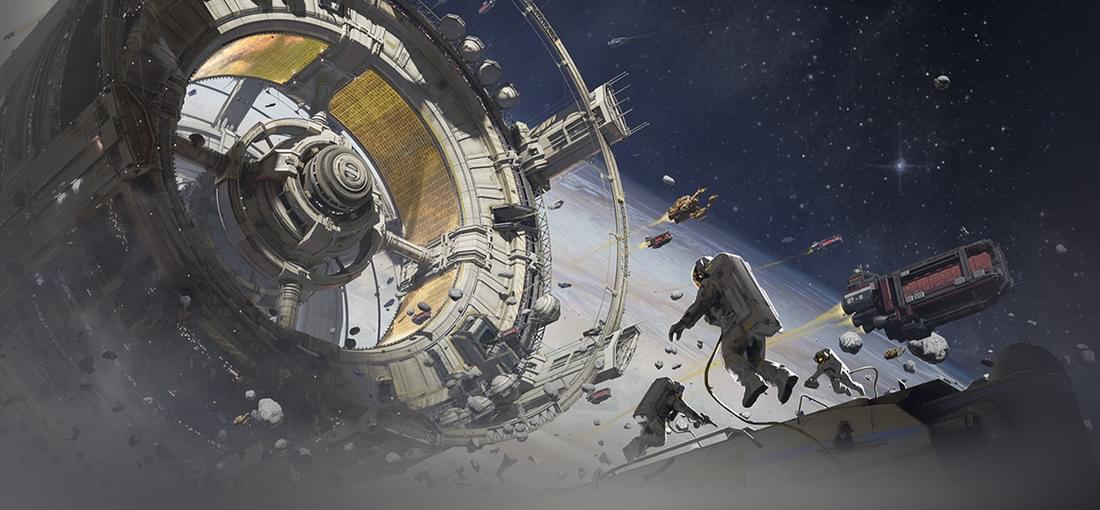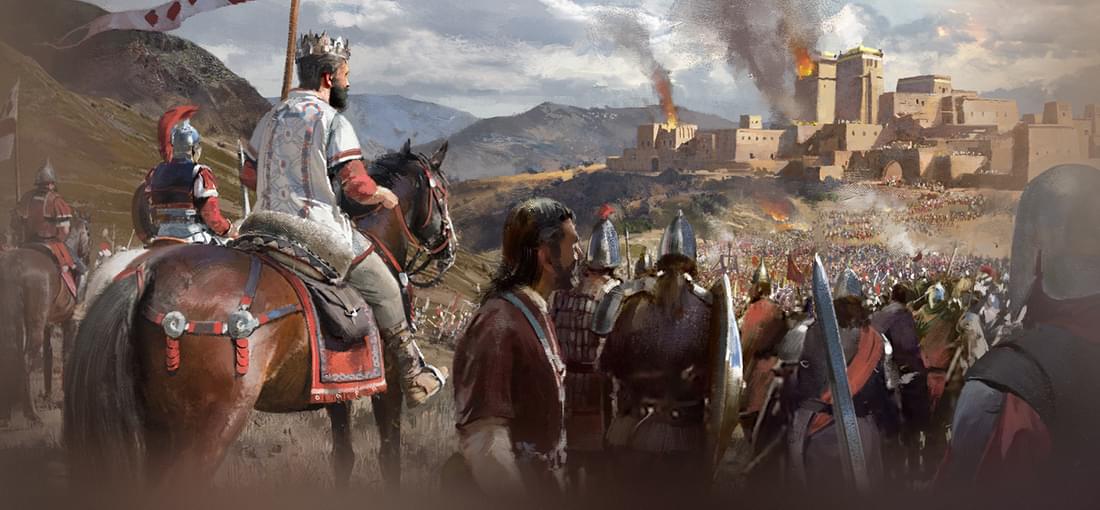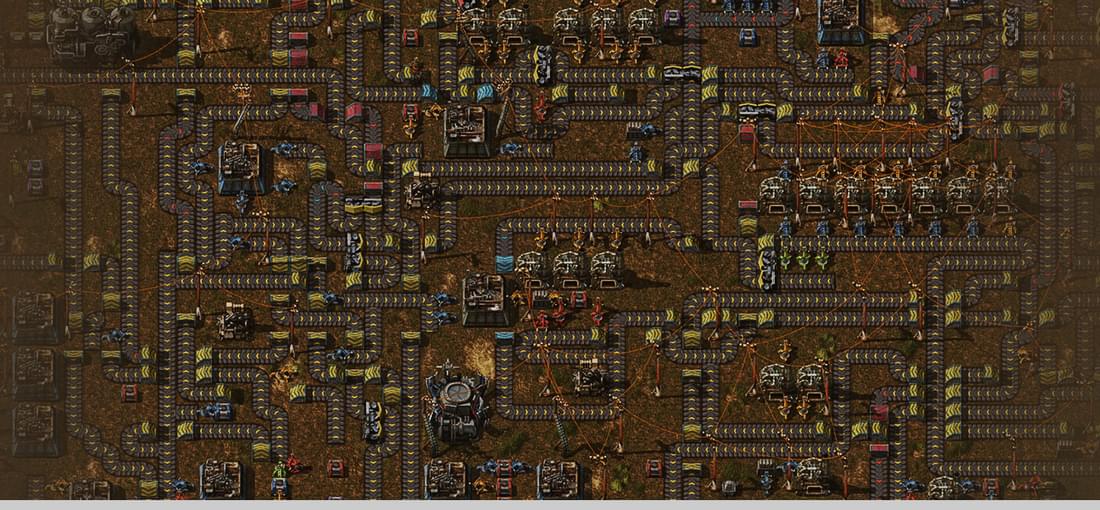


If I had to describe this game in one senctence, it would be a puzzle/adventure game disguised as a survival city-builder. The core premise of the game is interesting, but there's a lot to dislike about it. To start with the good, it's a great resource management game. It costs resources just to survive and move around. You have to balance physical resources, workforce, space, and time. Opening sectors too soon can doom you. Growing population too fast can doom you. Growing population too slow can doom you. There are lots of ways to fail, some predictable, and some surprising, and I mean surprising in a bad way. This game is very prone to death spirals, where you get into some problem and there's no way out without loading an earlier save. There's a heap of things to dislike: * The exploration choices are the same every time, and in game it doesn't tell you the outcome. So either save scum, look up the outcomes on the internet, or just live with "surprise, you picked wrong!". The game should either have some RNG or just tell you what each choice does. * Not great QoL. You will constantly have to micromonage your little ships, your resource thresholds, and waste management. * In game information is stingy. You don't get hard numbers about the stats of many buildings. * Lots of undocumented behaviour quirks on buildings. * Many stat screens you expect from a city builder in the 2020s are missing. No production surplus/deficit summary. No workforce allocation screen. * For a game about resource scarcity, it's a bit too easy to create a resource positive feedback loop, removing most of the time pressure. * Generally it seems to throw surprises at you that you should have been doing something about a few hours ago. Overall I was invested enough to finish the game, but was getting annoyed with the busywork distracting from the meaningful gameplay choices. This game made me want to go play Frostpunk or Factorio instead.

So I'm a fan of the books, which is probably the only reason I looked at this. What you get is a shooter with a wheel of time skin, which has aged badly. The story telling was not up to the standard of the source material and reminded me of a children's cartoon. I guess this holds some nostalgia value for some people but offers nothing to a modern gamer, not even fans of the books.

Obvious comparison is the Civ series, which basically devolves into micromanagement hell the longer it goes on. However old world is *not* a civ clone. Old World solves many of the issues the Civ series has been stuck with forever. You only have a certain number of orders per turn, so you need to decide which units to move instead of brainlessly shuffling every unit. It does 1UPT without devolving into a traffic jam or carpet of doom. Cities can only go in fixed locations (much like a space 4X) solving the "infinite city spam" that high level Civ devolves into. The research system borrows heavily from deck building games shaking up rote research paths. Then there's the character and event system that Old World has. Solves the "Eternal China" thing that you have going on in civ, makes diplomacy much more dynamic, and overall provides much more meat to the standard 4X skeleton. On the less than positive side, it's not really viable to play as the peaceful builder. While the economy is very well done, combat is pretty much required. To address some of the criticisms I have seen. "It's only 200 turns". There's a couple of ways to address this. Firstly the turns in Old World are far meatier than in most other 4Xs. Most of your decisions actually matter. Secondly, any seasoned 4X player knows that 4X games are "over" before they are over, so turn count isn't a great metric for how interesting a game is. "Units can teleport". On the surface this is true. Units have a soft movement cap which can be exceeded by spending "production" and then spending double orders to keep moving, letting a unit move a really long way in a turn. The criticism overlooks the opportunity cost though of other units sitting still, economy not advancing, character relationships neglected, etc. "Units only do damage on attack". This is sorta fair. It mostly comes from the "orders" system, doing damage on defense would be like getting free orders. Also discourages a defensive stalemate.

This game is great. It's not perfect, but no game is. You start by mining stuff by hand and feeding it into furnaces by hand. Factorio is a game about automation though, so you progress to using automated miners, conveyor belts, robot arms and assembly machines to make your stuff and move it around. You build intricate logic circuits to control bits of your factory (this part is optional). There is always something to do in your factory: optimise something, automate something, expand, implement a production line to produce whatever you just researched, solve whatever your current bottleneck is, shore up your defenses against the "biters", clear out some "biter" spawners. And it's addictive. When you think you have the pattern worked out, the tech tree gives you a new system which breaks the pattern. Mid game you get the ability to copy-paste bits of your factory. You start with belts, but during the game you add trains and flying robots to help you move things around. The devs actually care about fixing bugs and optimising performance rather than just adding marketing bullet points. They are fairly transparent and communicate well with the community. The game is extremely modable, there is a mod-manager built into the game, though vanilla is very playable, no "must-have" mods. Having said that, there are some great looking mods I can't wait to try after some more vanilla games done. As I said it's not perfect. I think bots become OP in the end-game and trivialise belts, exchanging an interesting belt system the game had for a fairly brainless "build more bots" exercise. The ability to export/import blueprints gives the temptation to build a "base I got off the internet" if you aren't disciplined. There isn't a lot of point to exploration beyond finding more ore patches. And the storytelling is practically non-existent if you are into that sort of thing. Lost my job, forgot how to sleep, and will now never get a girlfriend, 5/5.
This is the spiritual successor to Transport Tycoon Deluxe (TTD). TTD was a great game for it's time, but had a poor interface like most games of it's time. 10 years on, this is what the dev came up with. Nothing has changed, except that it runs on more modern OSes. The interface still sucks. If you want to set up any road transport, be prepared to click on the same set of stops for every truck/bus you buy. And you will need heaps, because they have barely any capacity. As most other reviewers have pointed out, OpenTTD is a open source clone of the original TTD, and it is a far better sequel. There is a great game in here, it's just buried under a maddening clickfest.